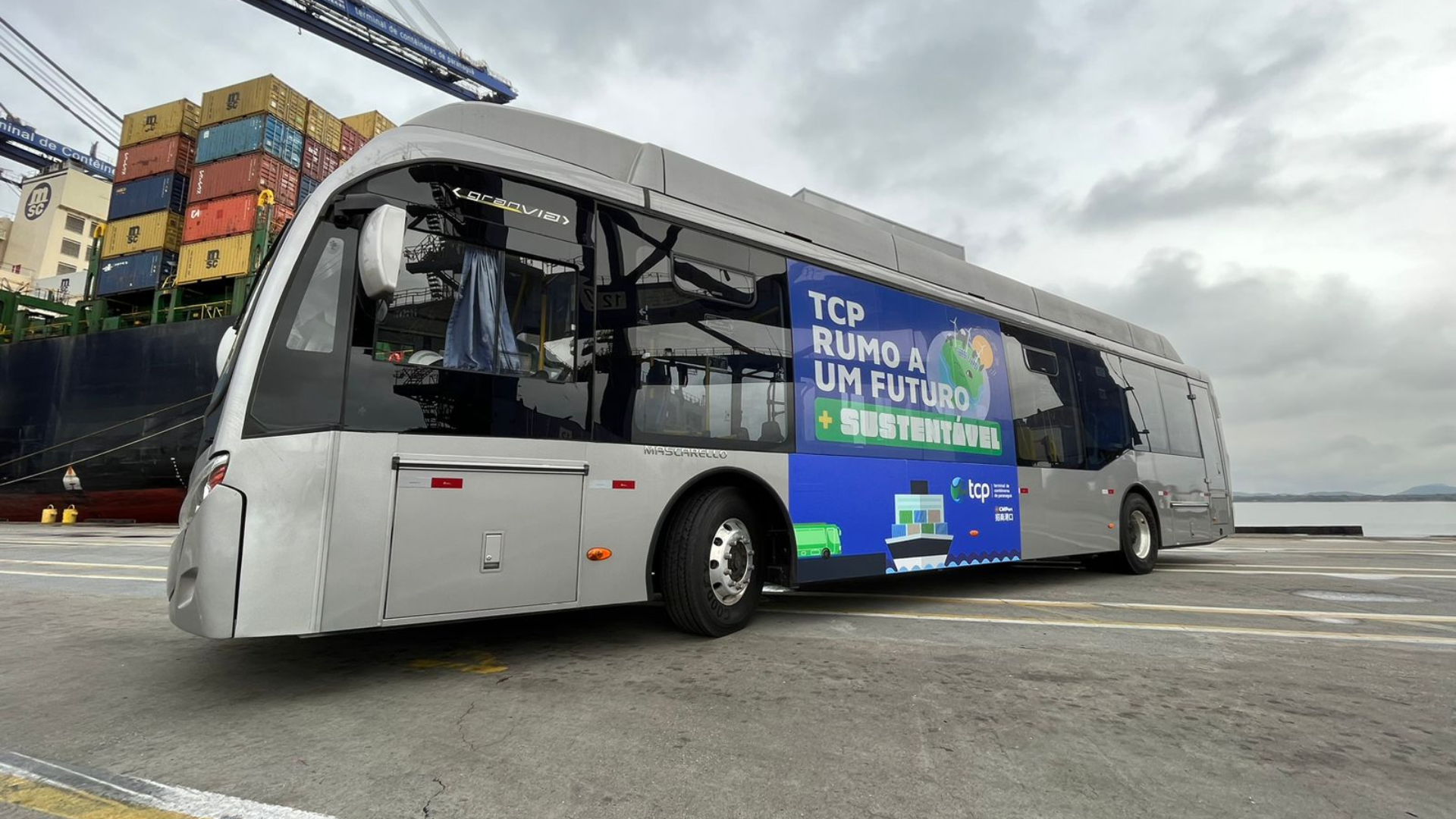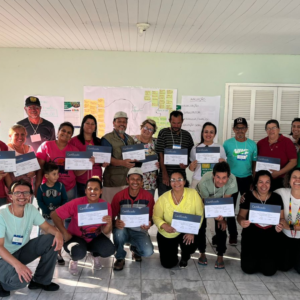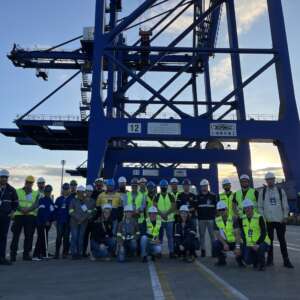TCP also invested in the electrification of two cranes to reduce greenhouse gas emissions and lower equipment maintenance costs.
On Tuesday (29), the company that manages the Paranaguá Container Terminal (TCP) received its first 100% electric vehicle. Completely silent and with zero CO2 emissions, the D9W 20.410 model, from the Chinese brand BYD, offers a range of 250 km per charge, as well as having a regenerative braking system, which helps to charge the battery whenever braking occurs.
TCP’s maintenance manager, Fernando Reis, points out that “another advantage of choosing this model is the air suspension, which allows the vehicle to be lowered to the height of the body, making it easier for passengers to enter, or to raise the bus to overcome any obstacles on the road”.
Due to safety measures and the large space of the terminal, which currently covers 480,000 m², buses are the main means of transportation used within TCP to take employees to their work stations. With the new electric model, the current fleet now has three vehicles.
Another recent sustainable measure by the company was the electrification of two RTGs (gantry cranes for containers on tires). The investments are part of the terminal’s strategy to reduce greenhouse gas (GHG) emissions, making operations more sustainable.
Completed on August 29, the electrification process of the two RTGs, used to move the containers arriving at the terminal by rail, took three months. “In addition to the 95% reduction in CO2 emissions from each piece of equipment, the conversion also represents a 90% reduction in maintenance costs, which translates into an improvement in the reliability and availability of the machines,” explains Fernando.
These RTGs have also been fitted with a new automation system, responsible for auto-steering, ensuring that the operator no longer has to control the direction of the equipment over the lanes. TCP currently has 29 RTGs and another 11 are due to arrive by the end of 2023.
25 years of investment in productivity
In 2022, TCP invested more than R$ 370 million in infrastructure works and the acquisition of new equipment, such as the purchase of 11 new RTGs, the expansion of the reefer area (responsible for storing containers with temperature control), and the expansion of the gate (vehicle entry and exit gates). Currently, the terminal’s maximum handling capacity is 2.5 million TEUs (20-foot-long containers) per year.



